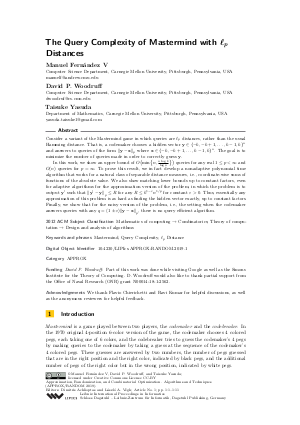LIPIcs.APPROX-RANDOM.2019.1.pdf
- Filesize: 0.52 MB
- 11 pages

 Creative Commons Attribution 3.0 Unported license
Creative Commons Attribution 3.0 Unported license







Feedback for Dagstuhl Publishing